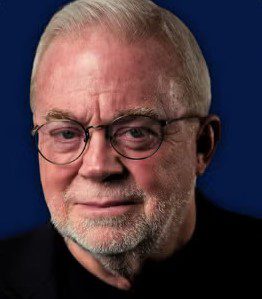
Kathryn Edin on the Injustice of Place
Poverty researcher Kathryn Edin talks about the insights from her new Book, The Injustice of Place: Uncovering the Legacy of...
About This Episode
Poverty researcher Kathryn Edin talks about the insights from her new Book, The Injustice of Place: Uncovering the Legacy of Poverty in America. “I'm realizing that you can't really understand anything about a place without knowing its history,” she says. A new public data set revealed the crushing poverty in rural areas without the supportive infrastructure of urban places. “Rural is not monolithic. Rural is really multidimensional… we illuminate that rural America holds both the most disadvantaged and the most advantaged places in America.”Resources and Mentions:

Kathryn J. Edin
Professor of Sociology and Public Policy
Kathryn Edin is one of the nation’s leading poverty scholars and author of many books on the topic. She is the William Church Osborn Professor of Sociology and Public Affairs at The Princeton School of Public and International Affairs and Director of The Bendheim-Thoman Center for Research on Child Wellbeing.
The Injustice of Place: Uncovering the Legacy of Poverty in America
The Injustice of Place: Uncovering the Legacy of Poverty in America is a sweeping and surprising new understanding of extreme poverty in America. Based on a fresh, data-driven approach, the authors reveal that America’s most disadvantaged communities are not the big cities that get the most notice. Instead, nearly all are rural. Three of the nation’s top scholars – known for tackling key mysteries about poverty in America – turn their attention from the country’s poorest people to its poorest places. Based on a fresh, data-driven approach, they discover that America’s most disadvantaged communities are not the big cities that get the most notice. Instead, nearly all are rural. Little if any attention has been paid to these places or to the people who make their lives there. This revelation set in motion a five-year journey across Appalachia, the Cotton and Tobacco Belts of the Deep South, and South Texas. Immersing themselves in these communities, poring over centuries of local history, attending parades and festivals, the authors trace the legacies of the deepest poverty in America—including inequalities shaping people’s health, livelihoods, and upward social mobility for families. Wrung dry by powerful forces and corrupt government officials, the “internal colonies” in these regions were exploited for their resources and then left to collapse. The unfolding revelation in The Injustice of Place is not about what sets these places apart, but about what they have in common—a history of raw, intensive resource extraction and human exploitation. This history and its reverberations demand a reckoning and a commitment to wage a new War on Poverty, with the unrelenting focus on our nation’s places of deepest need.


